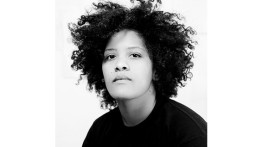Kemi Adeyemi | Ordinary Energy
Tuesday, April 13, 2021, 7 - 8:30pm

Kemi Adeyemi delivers a free, public online lecture as part of the Spring 2021 Intra-Disciplinary Seminar that tends to black queer parties that aren’t particularly interesting or important. It spotlights black queer people on and off the dance floor who are tired, bored, or simply fine; there are bad dancers and awkward conversation. The tedious, if not grueling, nature of queer clublife can tell us a lot, however, about the extraordinary expectations we place on black queer people, life, and politics. This talk builds a methodology of the black queer ordinary that refuses the burdens of spectacularity that shape how black queer life emerges in academic thought and popular culture.
Kemi Adeyemi is Assistant Professor of Gender, Women and Sexuality Studies and Director of The Black Embodiments Studio at the University of Washington. Her books include Feels Right: Black Queer Women’s Choreographies of Belonging in Chicago (Duke University Press, forthcoming) and the co-edited volume, Queer Nightlife (University of Michigan Press, Spring 2021). Recent writing appeared in GLQ, Women & Performance, and the Routledge Companion of African American Art History. Kemi currently serves as choreographer Will Rawls’ dramaturge and has written on and for artists including Tschabalala Self, Amina Ross, Jovencio de la Paz, Indira Allegra, and taisha paggett.
The IDS public lecture series is part of the Robert Lehman Visiting Artist Program at The Cooper Union. We are grateful for major funding from the Robert Lehman Foundation. The IDS public lecture series is also made possible by generous support from the Open Society Foundations.




